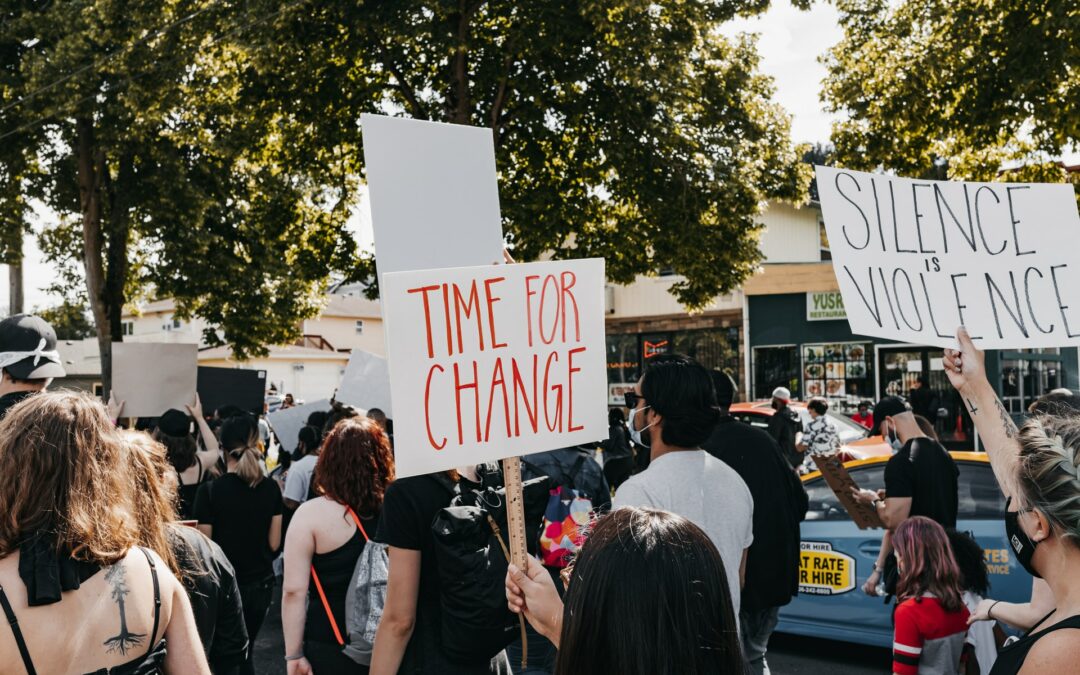Does the First Amendment apply to social media companies?
Question: Does the U.S. Constitution limit my private company’s ability to censor certain users and certain subjects?
I own a national social media company known as NormalStapler.com. We’re popular; 99% of American adults use my company daily to discuss everything from earthworms to Game Theory.
However, some people are using my company in a way which bothers me. For example, Pete Johnson, the Mayor of Greentree, has been creating a lot of chaos with the things he’s been saying to the general public on NormalStapler.com. Mayor Johnson is highly influential among certain demographics, and I actually think some of the things he’s been saying about last year’s election results constitute sedition—albeit, he hasn’t been charged with the crime of sedition.
I’d like to remove Mayor Johnson from my website immediately. I’d also like to censor all speech about last year’s election results because I just don’t think that type of chatter is beneficial to America.
Can I remove Mayor Johnson and censor certain political speech on NormalStapler.com? Does the U.S. Constitution apply to my private company?
Brief Answer: Generally, the First Amendment will not apply to private parties or privately owned websites. However, there are some exceptions. For example, if you’re allowing the public indiscriminate access to certain people’s public accounts, then you may have created one or more “public forums” which will have First Amendment and Fourteenth Amendment implications. Likewise, if you’ve dedicated your social media site to “public use,” the site itself may be limited in its ability to regulate speech about last year’s election.
I. Introduction
This article is not political commentary but instead a reflection on several cases to shed light on widespread misunderstandings about our First Amendment guarantee of free speech.
Also, as a nation, it is important that we are diligent in our hunt for truth, are willing to listen, and…to borrow from Dr. Martin Luther King, Jr. on this holiday weekend…it’s critical that we decide to choose “love…Hate is too great a burden to bear.”
II. Public forums explained
The US Supreme Court has held that “a traditional public forum is property that has as ‘a principal purpose . . . the free exchange of ideas.’”[1] Thus, places such as “streets and parks which ‘have immemorially been held in trust for the use of the public and…have been used for purposes of assembly, communicating thoughts between citizens, and discussing public questions” have been described as quintessential public forums.[2]
Unlike speech in a non-public forum, speech in a public forum is meant to be robust and censorship of speech in a public forum is subject to the US Supreme Court’s strict scrutiny—the highest form of judicial scrutiny engaged in by the court. As a result, to regulate speech in a public forum the entity (usually the state or federal government) must have (1) a “compelling interest,” and (2) the regulation must be narrowly tailored to achieve that interest.[3]
III. Privately owned public forums
Marsh v. Alabama[4]
In 1946, the Supreme Court was called upon to determine if privately owned streets, privately owned parks, and privately owned marketplaces can be “public forums.” In Marsh, Gulf Shipbuilding Corporation owned an entire town known as Chickasaw which was a suburb of Mobile, AL.[5] The property was made up of residential buildings, streets, a sewer system, and a “business block” on which retail establishments and a US Post Office were located.[6] The residents used the business block as their regular shopping center and they accessed it by using a street and a sidewalk owned by Gulf Shipbuilding Corporation.[7] Further, the town of Chickasaw and its shopping center were freely accessible to the public.[8]
However, a woman who happened to be a Jehovah’s Witness, attempted to distribute religious literature on the street and sidewalk near the post office within the business block. Gulf Shipbuilding Corporation had posted a notice which read as follows: “This is Private Property, and Without Written Permission, No Street, or House Vendor, Agent or Solicitation of Any Kind Will Be Permitted.”
The Jehovah’s Witness was warned not to distribute any religious literature and was asked to leave. When she declined, she was arrested for remaining on private property after being asked to leave.[9]
The US Supreme Court provided that (1) the Gulf Shipbuilding Corporation’s privately owned business block was a traditional public forum, and (2) the corporation was to be treated like a state entity with regard to its regulation of speech.[10]
Social media sites as public forums
Also, the US Supreme Court has recognized that cyberspace and “social media in particular” have become the most important spaces for the exchange of ideas between citizens in the US.[11]
So, while a business owner has the right to “lawfully dedicate”[12] his property to any lawful purpose, when a business owner’s private property is dedicated to public use, it evokes First Amendment concerns.[13]
Further, in terms of social media sites, the Court has held that “[o]pening an instrumentality of communication ‘for indiscriminate use by the general public’ creates a public forum.”[14]
Furthermore, the 2nd Circuit’s US Court of Appeals recently held that President Donald Trump’s social media account was indeed a public forum.[15]
IV. What this means to you, the social media mogul
A broadly used social media company such as NormalStapler.com likely has created a public forum as it relates to Mayor Johnson if it’s been opened “for indiscriminate use by the general public.” If that’s the case, your regulation of seditious speech may not be a problem[16] but your removal of Mayor Johnson may need to pass the Court’s strict scrutiny test (i.e., you’ll need a compelling interest and the means used must be narrowly tailored to achieve that interest). With that in mind, you’d be wise to obtain a legal consultation before making that determination on your own.
Likewise, if you’ve dedicated any part of NormalStapler.com to public use, then parts of the site—which could be the entire site—will also be public forums. Thus, if you intend to ban all conversations about the results of last year’s election from NormalStapler.com, you’ll need to again pass the Court’s strict scrutiny test. As I stated before, I suggest you speak with an attorney.
[1] International Soc. for Krishna Consciousness, Inc. v. Lee, 505 US 672, 679 (1992) (citing Cornelius v. NAACP Legal Defense & Ed. Fund, Inc., 473 US 788, 800 (1985)) (emphasis added).
[2] Perry Ed. Assn. v. Perry Local Educators’ Assn., 460 US 37, 45, (1983) (citing Hague v. CIO, 307 U. S. 496, 515 (1939)).
[3] See e.g., City of Boerne v. Flores, 521 U.S. 507 (1997)
[4] Marsh v. Alabama, 326 US 501 (1946)
[5] Id. at 502.
[6] Id.
[7] Id.
[8] Id.
[9] Id.
[10] Marsh, 326 U.S. at 507 (providing “[w]hether a corporation or a municipality owns or possesses the town the public in either case has an identical interest in the functioning of the community in such manner that the channels of communication remain free”).
[11] Packingham v. North Carolina, 137 S.Ct. 1730, 1735 (2017).
[12] See e.g., Cornelius v. NAACP Legal Defense & Ed. Fund, Inc., 473 US 788, 800 (1985).
[13] Id.
[14] Knight First Amendment Inst. At Columbia Univ. v. Trump, 928 F.3d 226 (2nd Cir. 2019) (quoting Perry Educ. Ass’n v. Perry Local Educators’ Ass’n , 460 U.S. 37, 47 (1983)) (emphasis added).
[15] Id. at 237.
[16] Certain speech—such as obscenities, fighting words, and sedition—are not protected by the Constitution and can be regulated without violating the Constitution. See e.g., 18 USC § 2384 (providing imprisonment and/or fines for conspiring “to overthrow, put down, or to destroy by force the Government of the United States”).

